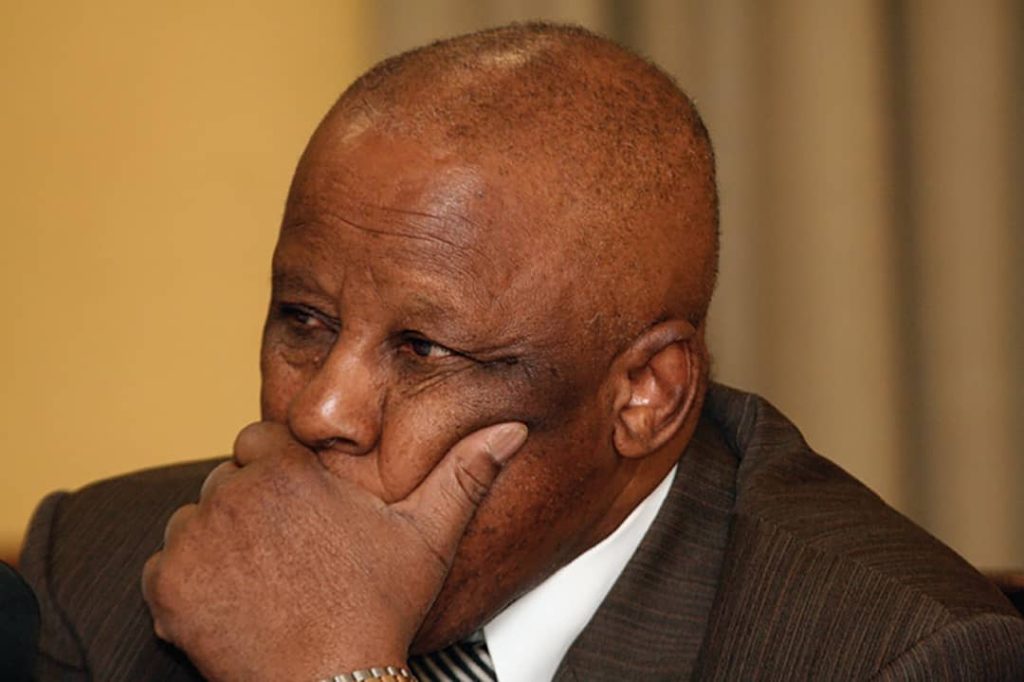- Former President’s daughter tries to liquidate joint family business
- Chedza alleges embezzlement at FGM Holdings, state abuse
LAWRENCE SERETSE
The High Court of Botswana has ordered Chedza Mogae, daughter of former President Festus Gontebanye Mogae to sell her stake in the family investment company, ending a corporate standoff but leaving behind explosive allegations of embezzlement, betrayal and abuse of state security agencies.
The case, Chedza Mogae v FGM Holdings (Pty) Ltd & Others, was filed on August 7th , 2025. It has exposed deep fissures in one of Botswana’s most prominent families and cast a shadow over the legacy of the country’s third president, once hailed globally as a model of integrity and democratic leadership.
FGM Holdings was incorporated in 2003 as a private investment vehicle for the Mogae family, intended to manage assets and dividend income rather than trade actively. According to documents filed in court, Festus Mogae holds a 70 percent majority stake, while his three daughters, Chedza, Nametso Nina, and Boikaego Neo each own 10 percent.
In her urgent petition, Chedza argued that the company had become “dysfunctional, paralyzed, and incapable of fulfilling its objectives.” She claimed that she was cut off from information, excluded from key decisions, and deprived of agreed monthly stipends. In her affidavit, she stated: “As a shareholder and director, I have been treated with contempt and disregard.”
The other family members pushed back, insisting the company was viable and that liquidation would amount to destroying an entity holding valuable assets. They argued instead that her shareholding should be bought out, a solution the court eventually endorsed.
Drastic remedy
On August 29th, Justice Oteng Motlhala delivered judgment in Gaborone. By consent of the parties, the court directed that Chedza sell her 1,000 shares representing 10 percent of the company’s issued capital to the “Remaining Shareholders,” namely her father Festus and sisters Nametso and Boikaego. The value of her shares will be determined by an independent valuer whose decision will be final and binding.
The ruling was not without sharp criticism of her approach. Justice Motlhala described the liquidation petition as a “drastic remedy, calculated to corner the respondents and go for the jugular.” He noted that while Chedza had eventually consented to a buyout, she went on to file supplementary affidavits that “escalated costs unnecessarily.” The judge ruled that she must pay the “wasted costs” associated with those affidavits, while the company would cover the remainder of the legal fees.
Although this ruling settled the corporate dispute, it left untouched the far more troubling allegations that had emerged in the process.
Shocking claims
In both court filings and private communications, Chedza made grave claims of personal and institutional betrayal. She alleges that in June 2024, after she began questioning financial irregularities at FGM Holdings, her mother and sisters arranged to have her forcibly committed to Sbrana Psychiatric Hospital.
According to her account, the Directorate of Intelligence and Security (DIS) and the Botswana Police Service were directly involved. “I was taken by DIS and the police, tranquilized at the police station, and then committed to Sbrana, all of which they (family) deny happened.”
Court records confirm that on June 14, 2024, a magistrate issued a reception order authorizing her admission to Sbrana. The order described her as “violent and a danger to others.” Yet a psychiatric evaluation four months later contradicted this. On October 6, 2024, Dr. Jow’hara Chundra diagnosed her with post-traumatic stress disorder following a “highly traumatic incident in Botswana, where her rights had been extremely violated,” adding pointedly that there was “no evidence of psychosis.”
For Chedza, this was proof that her committal was not a medical necessity but a political and familial tactic to silence her. She argues that it was triggered by her discovery of embezzlement and misuse of her father’s name in company transactions.
The family dispute is further complicated by the declining health of Festus Mogae himself. Now 85, the former president is suffering from dementia, a condition that has left him unable to manage his affairs. In her filings, Chedza alleged that her mother Barbara and sisters have taken advantage of his incapacity to “circumvent the law and steal,” seizing control of accounts and authorizations in his name.
“They have destroyed the legacy or any legacy that Festus Mogae left,” she declared.
Her family members rejected these accusations in their counter filings, maintaining that all actions taken were lawful and in the best interests of the company.
Financial Stake
The financial value of FGM Holdings remains unclear pending an independent valuation. However, the court papers reference several key disputes that illustrate what was at stake. There was an agreement for monthly stipends of P15,000 to both Chedza and her sister Nametso. According to her filings, Chedza’s payments were abruptly stopped while others continued to receive theirs.
There was also litigation involving Rosinah Keenelwe Maseba, where the company pursued a claim of more than P3.6 million for infrastructure built on its property. Chedza contends that this case was settled without her knowledge, further evidence of her exclusion from company decision-making. She also alleged that her mother and sisters mismanaged company funds and resources while locking her out of oversight.Sh
These disputes underscore the seriousness of the breakdown of trust, which the judge ultimately described as rendering the company incapable of continuing in its original form.
The judgment means that Chedza will leave the company with cash rather than a stake in its future. For Festus Mogae, the man once celebrated as a custodian of Botswana’s democratic ideals, the spectacle is a personal tragedy. His twilight years, already marked by illness, are now overshadowed by allegations of betrayal within his own family.
